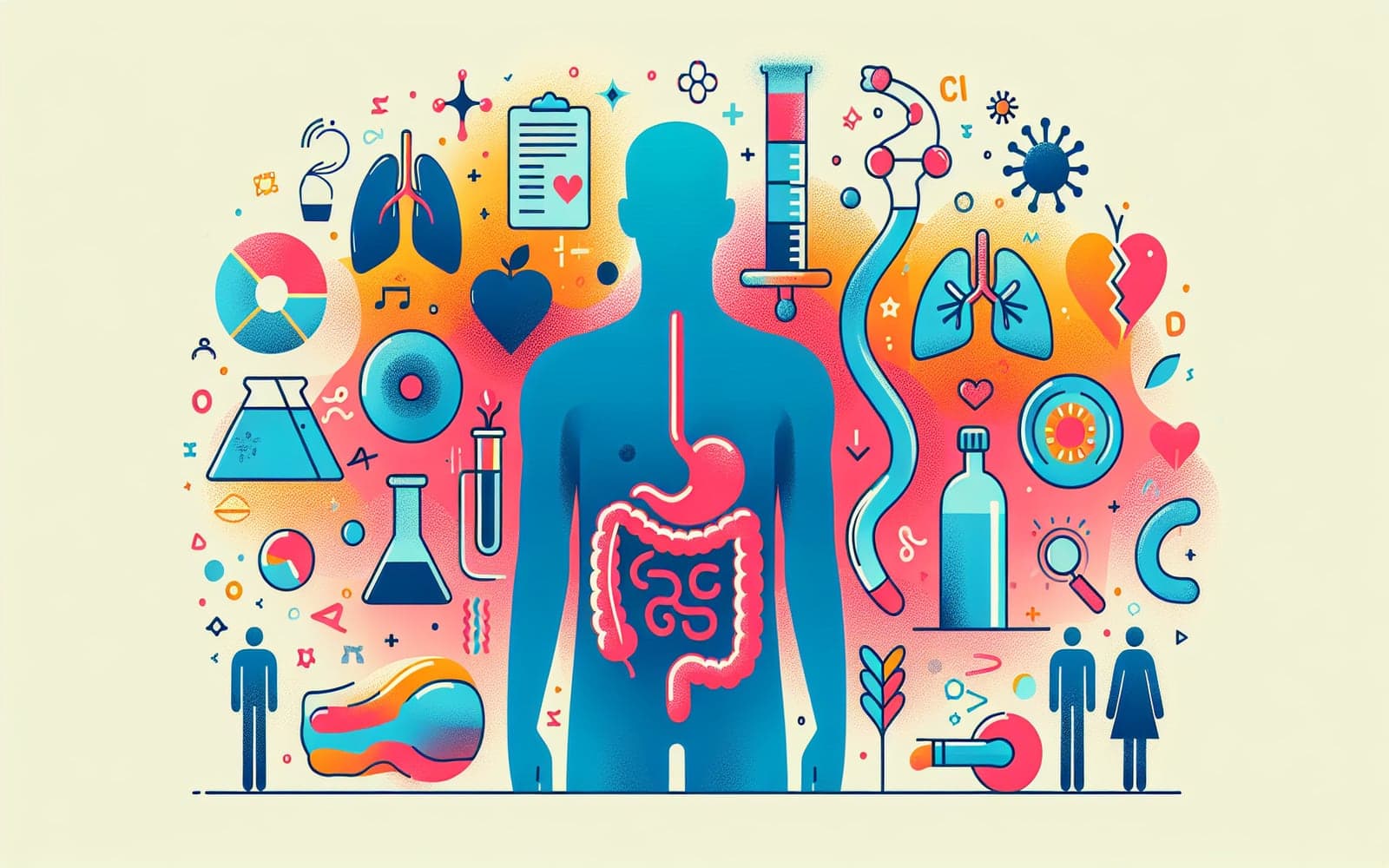What is Crohn's Disease? A Beginner's Guide to This Tricky Digestive Disorder
What is Crohn's Disease? A Beginner's Guide to This Tricky Digestive Disorder
The Basics
Crohn's disease is a complex inflammatory condition that can affect any part of your digestive tract. It's a chronic illness that causes inflammation, leading to a variety of uncomfortable and sometimes serious symptoms.
Contents
- What Causes Crohn's Disease?
- Common Symptoms
- Diagnosing Crohn's Disease
- Treatment Options
What Causes Crohn's Disease?
The exact cause of Crohn's disease is unknown, but researchers believe it's likely a combination of genetic and environmental factors. Your immune system may be overreacting to normal bacteria in your gut, causing inflammation. Factors like smoking, stress, and certain medications may trigger flare-ups or worsen symptoms.
Common Symptoms
Symptoms of Crohn's disease can vary widely from person to person. Common signs include persistent diarrhea, abdominal pain and cramping, fatigue, and unexplained weight loss. Some people may also experience fever, mouth sores, or skin problems. Because Crohn's can affect any part of the digestive tract, symptoms may differ depending on which area is inflamed.

Diagnosing Crohn's Disease
Diagnosing Crohn's disease can be tricky because its symptoms overlap with other conditions. Doctors typically use a combination of tests, including blood tests, stool samples, and imaging studies like CT scans or MRIs. A colonoscopy with biopsy is often needed to confirm the diagnosis and assess the extent of inflammation in the intestines.
Treatment Options
While there's no cure for Crohn's disease, many effective treatments can help manage symptoms and prevent complications. These may include anti-inflammatory drugs, immune system suppressors, antibiotics, and biologic therapies. In some cases, surgery may be necessary to remove damaged portions of the digestive tract. Your doctor will work with you to find the best treatment plan for your individual case.
FAQs
Is Crohn's disease the same as ulcerative colitis?
No, they're different but related inflammatory bowel diseases.
Can diet changes help manage Crohn's disease?
Yes, many find certain dietary adjustments beneficial.
Is Crohn's disease hereditary?
There's a genetic component, but it's not directly inherited.
Can stress cause Crohn's disease?
Stress doesn't cause it but may trigger flare-ups.
Is Crohn's disease curable?
No cure exists, but treatments can manage it effectively.
Living with Crohn's
While Crohn's disease presents challenges, many people lead full, active lives with proper management and care.
Additional References
- Lichtenstein GR, et al. ACG Clinical Guideline: Management of Crohn's Disease in Adults. Am J Gastroenterol. 2018;113(4):481-517.
- Feuerstein JD, et al. AGA Clinical Practice Guidelines on the Medical Management of Moderate to Severe Luminal and Perianal Fistulizing Crohn's Disease. Gastroenterology. 2021;160(7):2496-2508.
- Gomollón F, et al. 3rd European Evidence-based Consensus on the Diagnosis and Management of Crohn's Disease 2016: Part 1: Diagnosis and Medical Management. J Crohns Colitis. 2017;11(1):3-25.
This article has been reviewed for accuracy by one of the licensed medical doctors working for Doctronic.











